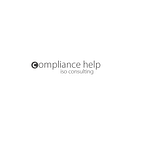Five Major Factors in How Much ISO 27001 Certification Costs in Australia?
Getting ISO 27001 certification is necessary as it provides a strong protection for organisational data. The ever-increasing percentage of cyberbullying forces companies to take corrective measures to protect the information of their customers, employees, and other stakeholders. Companies often show scepticism when it comes to accreditation as they think it will be expensive. The reality is that the final cost of accreditation depends on the size of the company and the number of employees.
The following article will provide more details on the aforementioned matter and also list the advantages a company can never enjoy if it does not have this certification.
What is the price of ISO 27001 certification?
The typical amount ranges between $15,000 to $27,000 depending on the size of the organisation as well as the current maturity level of the information security management system of the company. The role of the management team, the existing gaps between the system and its objectives and all expectations are all calculated within the final cost. Consultants will generally provide bespoke solutions, and therefore cost can be lessened in the end.
Top Five Benefits of ISO 27001 Certification
1. Enhanced Information Security
The ISO 27001 helps organisations identify, manage, and mitigate information security risks. By implementing the standard’s controls and practices, organisations can protect sensitive information from breaches, unauthorised access, and other security threats. This leads to a robust information security posture, reducing the likelihood of security incidents.
2. Legal and Regulatory Compliance
Compliance with the ISO 27001 can ensure that an organisation meets various legal, regulatory, and contractual requirements related to information security. Many laws and regulations mandate specific security measures, and the ISO 27001 certification demonstrates adherence to these requirements, helping to avoid legal penalties and regulatory fines.
3. Improved Business Reputation and Customer Trust
Achieving the ISO 27001 certification demonstrates a commitment to information security, which can enhance a company’s reputation. Clients, partners, and stakeholders gain confidence knowing that the organisation follows internationally recognised standards to protect their data. This trust can be a competitive advantage, attracting new business and retaining existing customers.
4. Systematic Risk Management
The ISO 27001 promotes a structured approach to risk management by identifying potential security risks and implementing appropriate controls to mitigate them. This systematic process helps organisations understand their risk landscape, prioritise risks based on their potential impact, and apply effective measures to minimise those risks.
5. Operational Efficiency and Continuous Improvement
Implementing the ISO 27001 involves streamlining and standardising information security processes across the organisation. This can lead to improved operational efficiency by eliminating redundant practices and enhancing coordination among different departments. Moreover, the ISO 27001 emphasises continuous improvement, encouraging organisations to regularly review and update their ISMS to adapt to evolving security threats and business needs.
To obtain accreditation to the ISO 27001 certification and be 100% compliant, you must hire expert consultants who can support you with comprehensive solutions. Their services are available for customisation and therefore they are affordable for small companies too.
Author Bio — The author is a retired ISO certification consultant. He now spends his time researching, writing blogs and other articles on various subject matters relevant to business management systems.
